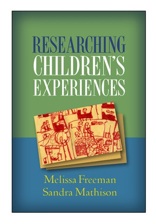From 2000-05, I studied the impact of the changing nature of student assessment in NY school districts, some poor and largely minority and others much wealthier and white. My superb research team has written a number of excellent ethnographies showing the impact of high stakes testing on the day to day lives of children, teachers, administrators and parents. We have published a number of articles, chapters and a book about these experiences.
Project Description
NSF funded this supplemental research project to examine the intersection between teachers’ professional development and the requirements of state mandated tests. This study examined the whole context for change especially as influenced by what seem to be increasingly prescriptive demands regarding content and pedagogy as manifest in the tests all students are required to take. The director of this project is Dr. Sandra Mathison.
Reforming Science Teaching/Learning in a High-Stakes Testing Environment
Study Questions:
What is the policy context for the development of state mandated tests in New York? Within a historical timeframe, how has NYS come to where it is now? What are the expected outcomes from NYSED standards and testing policies and practices? [These questions will be addressed through a review of documents (including those from NYSED, NYSUT, newspapers, archives, and other sources) as well as interviews with relevant policy makers.]
What is the impact of state mandated tests in contexts where there is substantial teacher professional development support for teachers? In particular, where are the impacts on teaching, learning, curriculum, and student experiences? Are there conflicting messages inherent in the intents of the professional development and the NYS tests? If so, how are these conflicts resolved? How do the 4th and 8th grade science tests evolve in the NYS policy and practice context, i.e., do they become high stakes and if so how? [These questions will be addressed through the fieldwork component of the study that will involve all schools to some extent and one elementary and middle school in each district to a greater extent.]
Study Results
The reporting of this research took many forms, including ethnographic accounts for each school, subsequent analyses reported in journal articles & chapters, and a research methods book based on the research. In some senses the core data is contained in the five ethnographies of elementary and middle schools.
Creating a Culture of Preparedness: One Suburban School’s Experiences with High-Stakes Testing
Make It a Great Day or Not. The Choice is Yours: Teaching & Learning Amidst Low Test scores in an Urban Middle School
Doing the Best on the Tests: A Suburban Elementary School’s Response to High Stakes Test
Finding a Path In A High Stakes Environment: One City Elementary School’s Experience with State Standards & Testing
Hemlock’s Stand: One Urban Elementary School’s Efforts to Raise Test Scores
A number of journal articles and book chapters have been based on this research, information for locating these publications follows.
Mathison, S. & Freeman, M. (2006) Teacher Stress and High Stakes Testing: How Using One Measure of Academic Success Leads to Multiple Teacher Stressors. In R. G. Lambert & C. J. McCarthy (Eds.) Understanding Teacher Stress in an Age of Accountability. Greenwich, CT: Information Age Publishing.
Mathison, S. & Freeman, M. (2004) Teachers’ Working with Standards and Assessment. In S. Mathison & E. W. Ross (Eds.). Defending Public Schools: The Nature and Limits of Standards Based Reform and Testing. Praeger Press.
In addition, Melissa Freeman and I wrote a book on doing research with children based on our experiences exploring children’s experiences with high stakes testing.

Kids & Assessment
This is one part of a five year study of the effects of high stakes testing. During the first years of the study we focused on schools as a whole, classroom contexts, parent and teacher perspectives. We tracked student scores and, of course, talked with teachers, parents and administrators about how the tests effected the kids. None of these data quite seem to capture the kids’ voice ~ what was the experience like for them, how did they make sense of school and the role of state mandated testing. And so, we spent a year working directly with the kids. Much of the design of this part of the study was handled by Melissa Freeman, and with a background in early childhood education she understood ways to interact with kids that didn’t simply treat them as small adults. Kids interacted with us through journaling, drawing (individually and collectively) and talking. Both their words and images were compelling, but their drawings evoke senses of fear, failure, success, hope in poignant ways that enabled our interpretation of their experience as well as standing alone as a representation of this experience.
This paper explains the study methodology and analyzes kids’ experiences with high stakes testing.
And, Kids & Testing is a quick overview of the findings from this study.
 Follow
Follow
